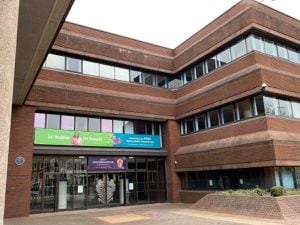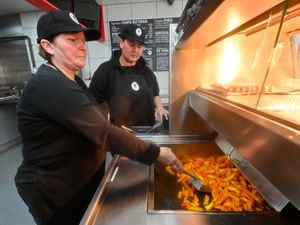New strategy to create jobs in Wolverhampton
Employment and education bosses in Wolverhampton have drawn up a new programme to help people in the city find work, whilst ensuring local businesses have regular access to a “talent pipeline” of suitable employees.

The council’s Education, Skills and Employment (ESE) Strategy 2030 has been developed specifically to support local people into good quality jobs and careers with a view to boosting the city’s economy at the same time.
A consultation on the strategy has already begun and will continue throughout July and August, with an update on progress to date being presented to the council’s children and young people scrutiny panel next week.
In a report to the panel, the council’s head of policy and strategy Laura Collings said: “We want to ensure local people can access new opportunities in our city, and that employers have access to a talent pipeline which meets their needs and helps the city to grow.
“Across the city’s education, skills and employment system there are many encouraging signs and much to be positive about – 89 per cent of the city’s schools are rated good or outstanding by Ofsted and we are delivering first class learning facilities with a seamless learner offer through the City Learning Quarter.
“There are growing sectors in digital, creative industries and professional services bringing new jobs as well as established clusters in advanced manufacturing and aerospace.
“Also, there are thousands of fantastic employment opportunities in our foundational sectors of health and social care, hospitality and retail, and logistics which provide vital services to local people. In addition, the city is a national leader in low carbon research and development through the new National Brownfield Institute at the University of Wolverhampton,” she added.
“However, some residents find it harder than others to access learning and work opportunities in our city. There remain areas of challenge, many of which are not unique to Wolverhampton and arise from a legacy of de-industrialisation and more recently the impact of the Covid 19 pandemic and cost of living crisis.
“This strategy sets out how working alongside our partners we can leverage our collective influence to improve skill levels and employment outcomes for local people.
“Across our communities, employers and partners there is a common desire to build a system where children, young people and adults thrive, which adopts a whole life approach to learning and work, where children are ready to learn, achieve well and attain good numeracy and literacy skills,” added the report.
The strategy’s priorities are supported by three principles:
Climate conscious: harnessing the potential of the transition to a green economy by equipping local people with the skills they need to access jobs in low carbon sectors.
Driven by digital: ensuring that every resident has the digital skills they need to gain, retain and progress in work.
Fair and equal: inclusive and accessible lifelong learning and employment opportunities for all in our city.
The consultation process includes focus groups and workshops with young people and the city’s youth council, refugees and migrants, equality groups, adult learners and public sector partners. In addition, there is a digital survey to give all residents and stakeholders the opportunity to provide their views.
The council’s children and young people scrutiny panel will discuss the strategy next Wednesday.





